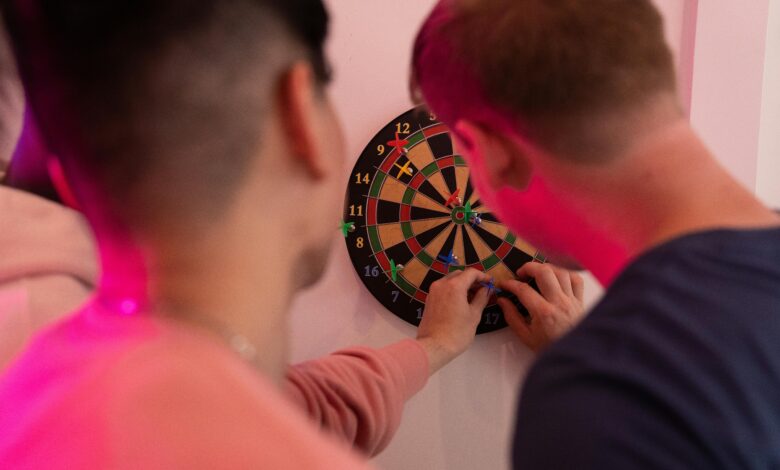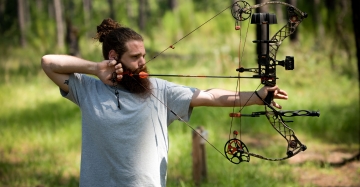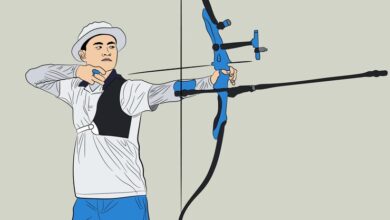What Is The Ideal Age To Start Playing Darts?

Knowing the ideal age to introduce your child to this classic dart game can help set realistic expectations and ensure a positive experience.
What Is The Ideal Age To Start Playing Darts? It is generally recommended for children to start learning darts around 8-10 years old.
At this stage, children have developed the hand-eye coordination and concentration skills required for dart throwing. Moreover, they are more likely to have the patience and focus to practice consistently.
Can Older Adults Start Playing Darts?
Certainly! Here’s a revised version of the text with corrections and improved clarity:
Playing darts can be enjoyed by older adults and can be a fun and stimulating activity. It has several benefits, including improving mental agility, focus, and hand-eye coordination. Additionally, darts are an excellent way to improve social interaction and open up new social and friendship opportunities, which can be especially helpful for seniors who may feel isolated or lonely.
Darts can be played in various locations, such as specialty clubs, community centers, or even at home, making it suitable for senior citizens with different living arrangements. Compared to other sports, darts is a low-impact activity, making it appropriate for people of all fitness levels.
With the right equipment, a little practice, and a willingness to learn and have fun, older adults can embark on their darts journey and enjoy the experience fully.
How To Safely Play Darts?
To guarantee a pleasurable and injury-free experience when playing darts, safety should always come first.
First and foremost, it’s crucial to provide a dedicated playing area with enough space between players and surrounding items.
Make sure there are no adjacent obstructions or possibly dangerous things in order to avoid being struck by a stray dart. It is also advisable for players to take their shots from behind the throwing line, or oche, as crossing it when someone else is throwing might lead to accidents.
It’s crucial to check the darts themselves to ensure there are no loose or broken parts and that they are in good condition.
Proper throwing technique should be used to prevent collisions, emphasizing a smooth release and follow-through.
Finally, keeping a watch on other players’ whereabouts is crucial. When not in use, darts should be stored carefully, like in a dartboard cabinet, to avoid unintentional injuries. Darts fans can play the game ethically and safely by adhering to these rules.
What Equipment Do You Need To Play Darts?
First and foremost, you need a dartboard. Dartboards are typically made of sisal fibers or bristle, which allow the darts to stick securely.
The typical dartboard is divided into numbered segments and measures 18 inches in diameter. In addition to the board, a set of darts is required.
Flights, shafts, and barrels make up a dart. To accommodate varied tastes, barrels come in various materials and weights.
Shafts, composed of either nylon or aluminum, join the barrel to the flight. The wing-like parts at the end of the darts that control their trajectory are called flights.
In addition, the starting point from which players throw their darts is frequently marked with a dart mat or throw line.
This promotes uniformity and equity throughout a game. A dart case or holder can be helpful for securely storing and moving your darts, though it’s unnecessary.
Ultimately, having these critical pieces of equipment is crucial in setting up your dart-playing area and enjoying the game to the fullest.
Can You Find Success In Darts At Any Age?
Many people believe that the ideal time to excel in any sport is during youth when the body is still agile and full of vitality. However, Darts are a remarkable deviation from this rule. Darts is a game wherein individuals of any age can succeed since it primarily depends on mental focus, precision, and strategy rather than physical strength or agility.
Due to their experience and wisdom, older players can excel at darts by using their precision and finesse. In addition, the darts community is frequently hospitable and encouraging, offering chances for players of all ages to compete and advance their abilities.
If one is willing to put in the effort, practice consistently, and learn from mistakes, success in darts can be achieved irrespective of age.
So, whether you are a young enthusiast or a seasoned player looking for a new challenge, darts offers a level playing field where passion and determination are the primary factors for success.
FAQS:
Can children play darts?
Indeed, kids can play darts. But it’s crucial to protect them by using soft-tip darts and giving them the proper supervision and direction.
Can young children develop the necessary skills to play darts?
Yes, young kids can acquire the skills needed to play darts. Children may require time and practice to improve their accuracy and hand-eye coordination, just like in any other sport or game. Children can learn and enjoy the game by using age-appropriate equipment and receiving support and encouragement.
Are there any age restrictions for playing darts?
Darts games usually don’t have any complex age restrictions. Nonetheless, there might be guidelines or age restrictions for participation in some events or establishments. It is a good idea to familiarise yourself with the exact policies and procedures of the location or event you want to attend.
Conclusion:
Determining the ideal age to start playing darts is subjective. While some believe that starting at a young age allows for long-term development and mastery, others may find that beginning later in life brings a unique perspective and dedication.
It is important to remember that age should not limit one’s pursuit of a passion for darts. With the right mindset, practice, and determination, anyone can excel in this timeless sport.
Therefore, regardless of age, now is the perfect time to pick up a dart and embark on an exciting journey of skill, strategy, and camaraderie.


